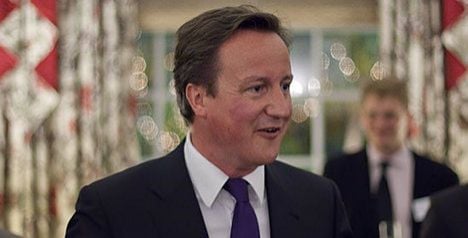During this year’s political campaign, France’s newly-elected president, Francois Hollande, proposed hitting France’s wealthy with a 75 percent tax on any annual income beyond a million euros ($1.26 million).
Anticipating a mass exodus of French top earners, Cameron said refugees from the tax would be welcome across the English Channel.
“When France sets a 75 percent top income tax rate we will roll out the red carpet, and we will welcome more French businesses which will pay their taxes in Britain,” he said.
“That will pay for our public services and our schools,” he added, during an address to business leaders at the G20 summit in the Mexican resort of Los Cabos.
Later, the French Labour Minister Michel Sapin, also in Mexico for the G20, suggested Cameron’s comment had just spilled out without much forethought. After all, he joked, “I don’t know how one can roll out a red carpet over the Channel, it risks taking on some water.”
Behind the comments are some serious differences over how to address the economic crisis.
Cameron, faced with his own weak economy, has resisted hiking taxes to boost state income, believing them a drag on growth, while Hollande is pushing to increase government income to help cut the French deficit and allow the government to boost economic activity.



 Please whitelist us to continue reading.
Please whitelist us to continue reading.
Member comments